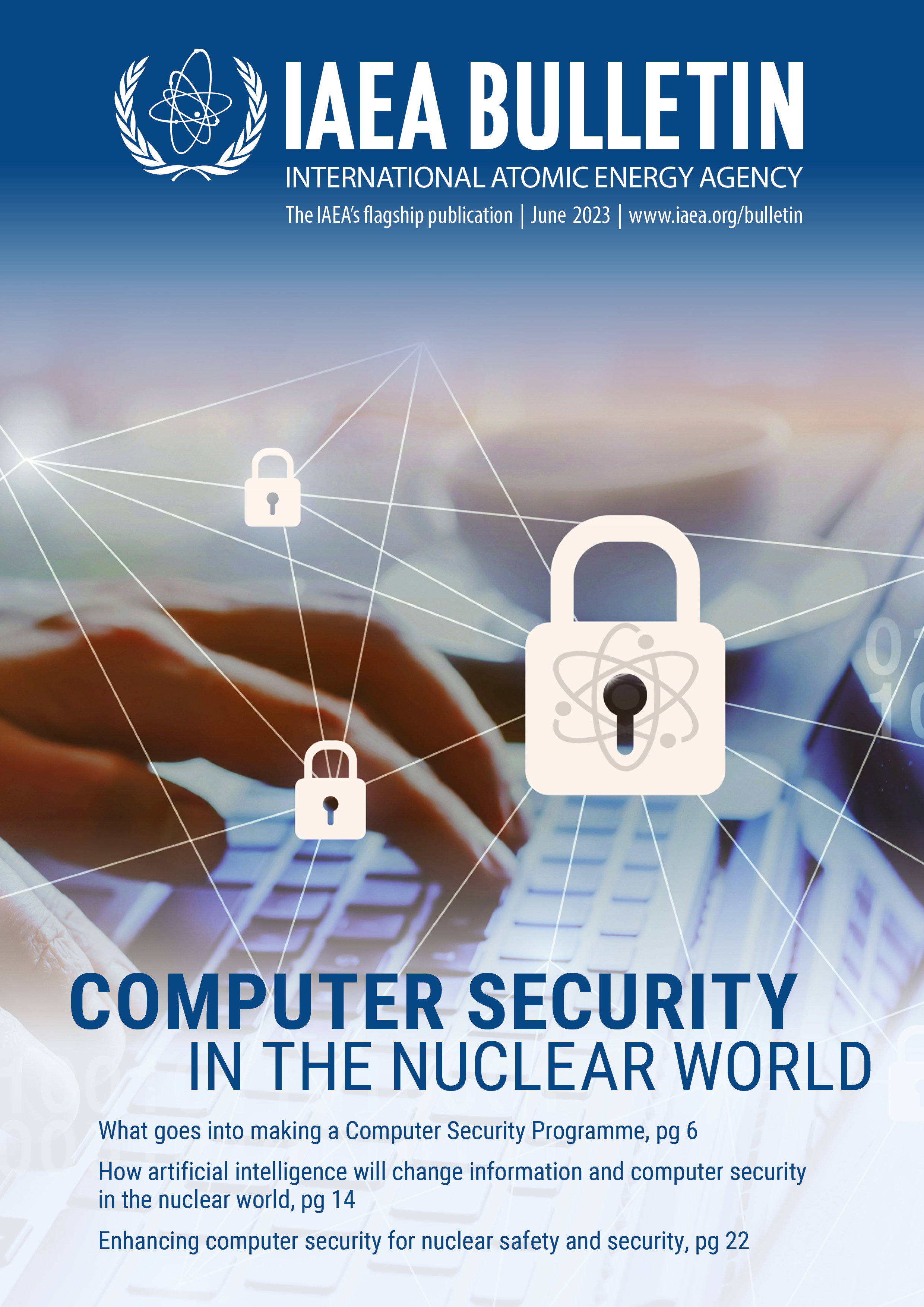In Egypt, the IAEA works with the Egyptian Nuclear and Radiological Regulatory Authority (ENRRA) to review existing computer security regulations and address potential gaps in regulatory aspects. A national training course was organized in 2022 to develop national capacities for conducting computer security inspections in nuclear facilities. Using the IAEA Nuclear Security guidance and techniques available to inspectors, the course equipped the participants with the knowledge and practical expertise to better assess the effectiveness of computer security at nuclear and radiological facilities.
Nadia M. Nawwar, computer engineer at the Radioisotope Production Facility (RPF) in the Egyptian Atomic Energy Authority (EAEA), was one of the 22 participants in this course. “I learned how the regulatory body performs computer security inspections and what are the necessary computer security arrangements that the operator needs to have in place,” she said. “Since taking part in the course, we have been able to review and validate the Computer Security Regulation Elements more effectively. The course helped us to develop and implement a computer security programme in order to protect the facility’s sensitive information, and sensitive digital assets vulnerable to cyber-attacks.”
In Ghana, the IAEA conducted an expert mission in April 2023 to assess the Ghana Nuclear Regulatory Authority's (GNRA) current national computer security regulations and inspections programme.
“The development of computer security in Ghana posed several challenges, including the absence of local technical knowledge on the subject matter, the merging of the legal issues and technical know-how, and how to manage the resources required,” said Nelson Kodzotse Agbemava, Team Leader of the Nuclear Cyber Security Section of GNRA. “During the regulatory development process, expert review support was sought from the IAEA and other countries to ensure a comprehensive and systematic approach to computer security.”
Similarly, the IAEA also conducted an expert mission in Nigeria in October 2022. “The need for an effective legislative and regulatory framework for computer security was identified in 2019 by the IAEA-led Integrated Nuclear Security Support Plan (INSSP) review in the country,” said Ethel Ofoegbu, Chief Regulatory Officer from the Nigerian Nuclear Regulatory Authority (NNRA). “Consequently, the IAEA assessed the national computer security regulations, identified gaps and provided necessary advice. One of the outcomes was the development of the draft Nigerian Computer Security Regulations for Nuclear and Radiological Facilities and Activities.” Currently, Nigeria is reviewing the draft regulations and is planning a training course on computer inspections.
Taking into consideration the growing number of assistance requests from countries, the IAEA is developing a technical document to help countries establish the key elements of computer security regulations. The IAEA is also ready to assist many more countries draft regulations in the area of computer security when the IAEA Computer Security Regulation Elements Drafting School is launched in August 2023. The School aims to help multiple countries simultaneously develop their specific national computer security regulations, rather than the IAEA assisting individual countries one at a time. After the initial workshop in August, the School will be organized semi-annually across all regions. Together, participants will have the opportunity to draft their national strategy for computer security - the regulatory foundation of a robust computer security programme.

